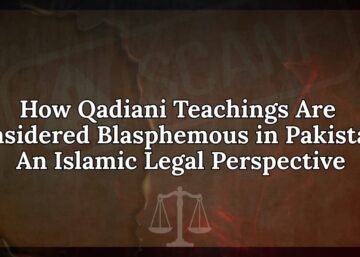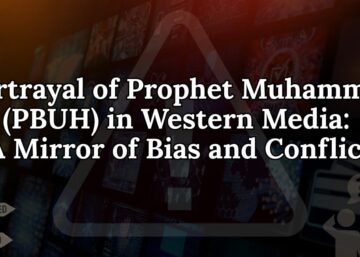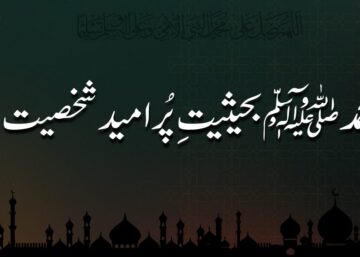Introduction
Throughout Islamic history, the doctrine of the finality of prophethood has been a foundational belief, safeguarding the integrity and unity of the Muslim Ummah. The belief that the Prophet Muhammad (PBUH) is the last prophet, as clearly stated in the Quran and reinforced by prophetic traditions, has profound theological and practical implications. This article explores the significance of this doctrine, its historical challenges, modern-day threats, and the necessity of upholding it for the preservation of the Muslim community.
Challenges Faced by Early Muslims
The Emergence of False Prophets
The finality of prophethood was challenged soon after the passing of the Prophet Muhammad (PBUH). Several individuals, driven by personal ambition and political motives, falsely claimed prophethood. Among the most notorious were Musaylimah al-Kadhdhab, Aswad Ansi, and Sajah bint al-Harith.
Musaylimah, known as “Musaylimah the Liar,” was a prominent figure who amassed a significant following. He not only claimed to be a prophet but also sought to establish a parallel state in Yamamah. His actions posed a grave threat to the unity and stability of the nascent Muslim Ummah. The first caliph, Abu Bakr Siddiq (RA), recognized the danger posed by Musaylimah and launched a decisive military campaign against him. The famous Battle of Yamamah ensued, resulting in Musaylimah’s defeat and the restoration of unity among the Muslims.
Aswad Ansi and Sajah bint al-Harith similarly attempted to exploit the political vacuum following the Prophet’s death. Their claims were swiftly rejected by the companions of the Prophet, who understood the critical importance of upholding the doctrine of finality.
The Consensus of the Companions
The companions of the Prophet Muhammad (PBUH) were unanimous in their rejection of false prophets. This consensus highlights the importance they placed on the doctrine of finality as a means of preserving the integrity of Islam. Abu Bakr’s decisive actions against the claimants of prophethood set a precedent for future generations, demonstrating that any deviation from this core belief would not be tolerated.
Modern-Day Threats to the Doctrine
In the modern era, new movements and ideologies have emerged, challenging the doctrine of finality. Some individuals and groups have sought to reinterpret or undermine this belief, leading to confusion and division within the Muslim Ummah. These movements often present themselves as reformist or spiritual, but their underlying aim is to dilute the core teachings of Islam.
One of the key dangers posed by these movements is the potential for fragmentation. History has shown that whenever a new claimant to prophethood arises, it results in division and conflict within the Muslim community. The unity of the Ummah is preserved by adherence to the belief in the finality of prophethood, which acts as a safeguard against such divisions.
Logical Arguments
Perfection and Universality of the Divine Message
The doctrine of finality is supported by the logical argument that Islam, as a complete and perfect religion, requires no further prophets. The Quran, as the final revelation, addresses all aspects of human life and provides guidance for all times and circumstances. Unlike previous scriptures, which were subject to distortion and required subsequent prophets to restore the original message, the Quran has been preserved in its original form.
Moreover, the universality of the Quranic message ensures that it remains relevant to all peoples and cultures. The Prophet Muhammad (PBUH) was sent as a mercy to the entire world, and his teachings encompass all areas of human existence. Therefore, there is no need for another prophet to deliver new guidance.
Completion of the Prophetic Mission
The mission of the prophets was to convey Allah’s message to humanity and establish His law on earth. With the advent of the Prophet Muhammad (PBUH), this mission was completed. In Surah Al-Ma’idah (5:3), Allah declares:
“This day I have perfected for you your religion and completed My favor upon you and have approved for you Islam as your religion.”
This verse unequivocally states that the process of divine revelation has reached its culmination. Since the message has been perfected, there is no need for new prophets to arise.
Lessons from History
The Role of Scholars
While the door to prophethood has been closed, the role of scholars (Ulama) remains essential. Scholars serve as the inheritors of the prophetic legacy, tasked with interpreting and applying Islamic teachings in light of changing circumstances. Through their knowledge and guidance, they ensure that the Muslim community remains on the straight path.
Historically, scholars have played a pivotal role in preserving the purity of Islamic teachings and countering deviant ideologies. By upholding the doctrine of finality, they have protected the Ummah from fragmentation and ensured the continuity of true Islamic knowledge.
Unity Through Belief in Finality
The belief in the finality of prophethood has been a unifying force for the Muslim Ummah. By adhering to this doctrine, Muslims have been able to form a cohesive and stable community. The emergence of false prophets and deviant movements has historically led to discord and division. Upholding the finality of prophethood prevents such divisions and fosters unity among Muslims.
Conclusion
The doctrine of the finality of prophethood is a cornerstone of Islamic faith, ensuring the completeness and preservation of divine guidance. It serves as a safeguard against fragmentation and deviation, preserving the unity and integrity of the Muslim Ummah. By adhering to this belief, Muslims can protect themselves from the dangers posed by false prophets and deviant ideologies.
In today’s world, where challenges to Islamic teachings are numerous, it is more important than ever to uphold the doctrine of finality. This belief not only preserves the theological foundations of Islam but also ensures the spiritual and social cohesion of the Muslim community. The role of scholars in guiding the Ummah and preserving its unity is vital, and their efforts must be supported.
Belief in the finality of prophethood is not merely a theological concept but a practical necessity for the survival and prosperity of the Muslim Ummah. By remaining steadfast in this belief, Muslims can honor the legacy of the Prophet Muhammad (PBUH) and continue to thrive as a united and strong community.



